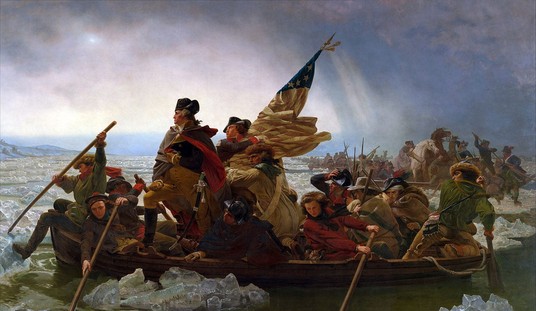Christopher Hitchens visited Tunisia in 2007 and saw the same things I did:
On the face of it, the country is one of Africa’s most outstanding success stories. In the 2006–7 World Economic Forum Global Competitiveness Report, it was ranked No. 1 in Africa for economic competitiveness, even, incidentally, outpacing three European states (Italy, Greece, and Portugal). Home ownership is 80 percent. Life expectancy, the highest on the continent, is 72. Less than 4 percent of the population is below the poverty line, and the alleviation of misery by a “solidarity fund” has been adopted by the United Nations as a model program. Nine out of 10 households are connected to electricity and clean water. Tunisia is the first African state to have been accepted as an associate member of the European Union. Its Code of Personal Status was the first in the Arab world to abolish polygamy, and the veil and the burka are never seen. More than 40 percent of the judges and lawyers are female. The country makes delicious wine and even exports it to France. The Tunisian Jews make a potent grappa out of figs, which is available as a digestif in most restaurants. There were several moments, as I was loafing around the beautiful blue-and-white seaside towns or the exquisite classical museums and ruins, when the combination of stylish females, excellent food, clean streets, smart-looking traffic cops, and cheap and efficient taxis made me feel I was in a place more upscale than many European recreational resorts and spas. I remembered what my old friend the late Edward Said had told me: “You should go to Tunisia, Christopher. It’s the gentlest country in Africa. Even the Islamists are highly civilized!”
But before I could be seduced into abject boosterism, I had a lengthy, not to say lavish, dinner with some of the country’s academics and intellectuals and writers. The atmosphere in the restaurant was quasi–Left Bank Parisian, and I think I lulled them a bit by recounting some of the Davos statistics cited above. Then I added two more. Since its independence from France, in 1956, Tunisia has had exactly two presidents, the first of whom, Habib Bourguiba, became a “president for life” before being deposed for senility and megalomania. The current ruler, Zine El Abidine Ben Ali, will celebrate his 20th year of uninterrupted power this November. At election times, he has been known to win more than 90 percent of the vote: a figure that never fails to make me nervous. I have not met the man, but within hours of landing in the country I could have passed an exam in what he looks like, because his portrait is rather widely displayed.
Well, you can say for Tunisia that people do not lower their voices or look over their shoulders (another thing that has made me nervous in my time) before discussing these questions. But the conversation still took on a slightly pained tone. Was the West—that’s me—not judging the country by rather exacting standards? To the east lay the huge territory of Libya, underdeveloped and backward and Islamized even though floating on a lake of oil, and, furthermore, governed since 1969 by a flamboyantly violent nutcase. (“We are the same people as them,” said my friend Hamid, “but they are so much en retard.”) To the west lay the enormous country of Algeria, again artificially prosperous through oil and natural gas, but recently the scene of a heinous Islamist insurgency that—along with harsh and vigorous state repression—had killed perhaps 150,000 people. Looking farther away and to the south, Sudan’s fanatical and genocidal militia, not content with what they had done in Darfur, were spreading their jihad into neighboring Chad, extending a belt of violent Islamism across the sub-Saharan zone. Increasingly, Africa was becoming the newest site of confrontation not just between Islam and other religions (as in the battle between Christian Ethiopia and Islamist Somalia, or between Islamists and Christians in Nigeria, or Islamists and Christians and animists in Sudan) but between competing versions of Islam itself. Why pick on mild Tunisia, where the coup in 1987 had been bloodless, where religious parties are forbidden, where the population grows evenly because of the availability of contraception, where you can see male and female students holding hands and wearing blue jeans, and where thousands of Americans and more than four million Europeans take their vacations every year?
When it’s put like that, who wouldn’t want the alternative of an African Titoism, or perhaps an African Gaullism, where presidential rule keeps a guiding but not tyrannical hand? A country where people discuss micro-credits for small business instead of “macro” schemes such as holy war? Mr. Ben Ali does not make lengthy speeches on TV every night, or appear in gorgeously barbaric uniforms, or live in a different palace for every day of the week. Tunisia has no grandiose armed forces, the curse of the rest of the continent, feeding parasitically off the national income and rewarding their own restlessness with the occasional coup. And the country is lucky in other ways as well. Its population is a smooth blend of black and Berber and Arab, and though it proudly defends its small minorities of Shiites, Christians (Saint Augustine spent time here), Baha’is, and Jews (there is a Jewish member of the Senate), it is otherwise uniformly Sunni. It has been spared the awful toxicity of ethnic and religious rivalry, which makes it very unusual in Africa. Its international airport is named Tunis-Carthage, evoking African roots without Afrocentric demagogy. I still could not shake the feeling that its system of government is fractionally less intelligent and risktaking than the majority of its citizens.









Join the conversation as a VIP Member